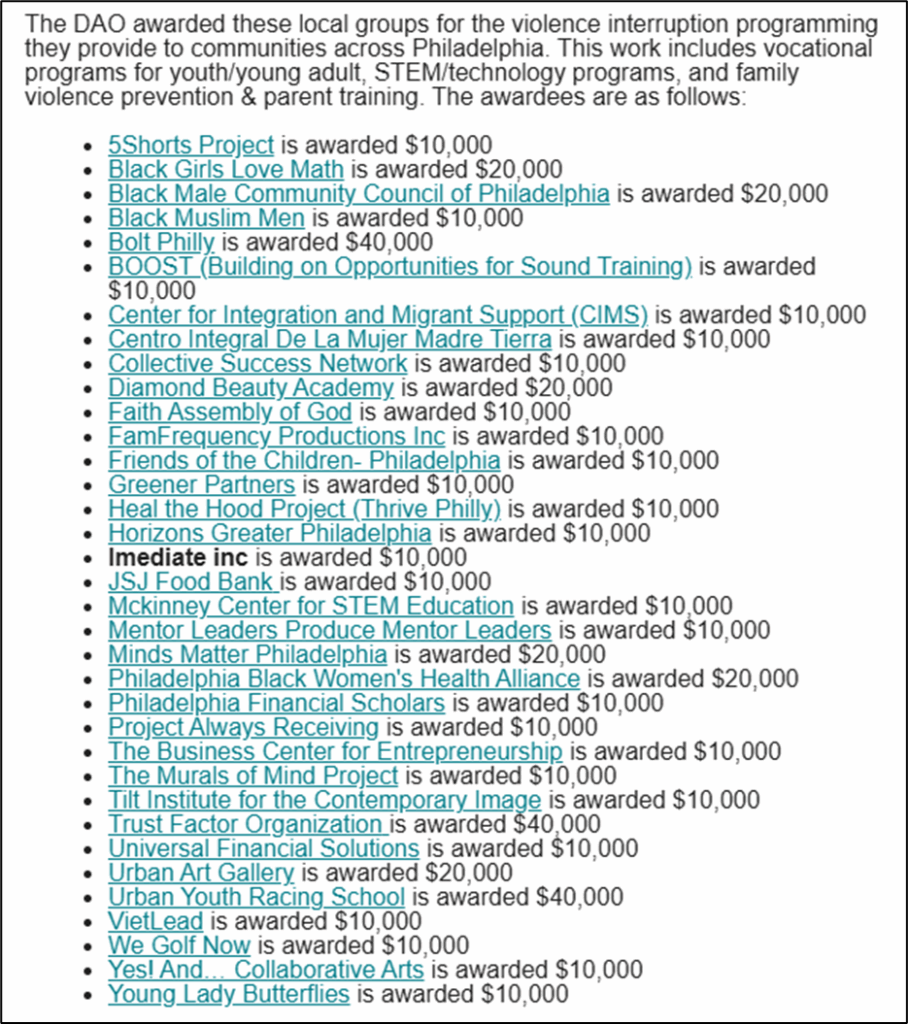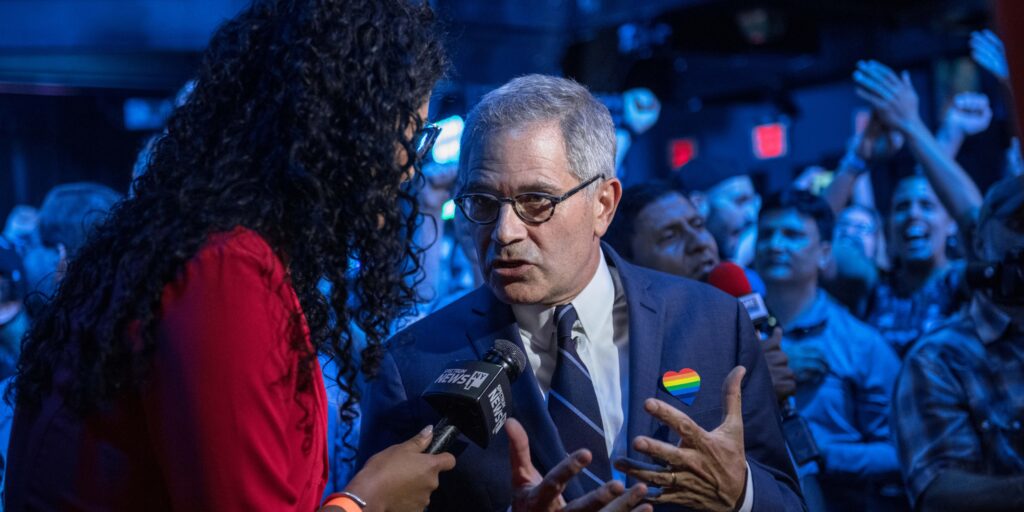As Philadelphia voters head to the polls, District Attorney Larry Krasner’s office has again rolled out a highly publicized round of taxpayer-funded “violence prevention” grants to dozens of nonprofit organizations. The timing—a familiar feature of Krasner’s election-year playbook—raises deeper questions about political motivations, oversight, and the blurred line between public good and electoral self-interest.
On Thursday, October 30, the District Attorney’s Office and its External Engagement and Government Affairs Division announced $500,000 in new micro-grants to 36 community-based 501(c)(3)s at the Church of Christian Compassion in West Philadelphia. These awards were framed as part of the DAO’s ongoing Violence Prevention Grant Initiative, which has now distributed more than $7 million since its launch in May 2021. According to the DAO, the grants fund programs that offer vocational training, STEM education, parenting support, and anti-violence programming across the city.
But this latest round, arriving less than a week before Election Day, extends a now-obvious pattern noted by Broad + Liberty in two prior rounds: Krasner’s office routinely issues major grant announcements during election seasons, seemingly aimed at energizing key constituencies rather than advancing lasting reductions in crime. This year, even before this final push, Krasner had already broken his own record for total dollars issued through the program in a single year.

A striking feature of Thursday’s announcement lies in who received these funds. Many of the grantees are racially or culturally defined organizations — such as Black Girls Love Math, the Black Male Community Council of Philadelphia, Black Muslim Men, and VietLead. Their missions, while legitimate in supporting local communities, also overlap neatly with Krasner’s most reliable voting blocs.
It is difficult to avoid the impression that the DAO’s funding strategy is designed not only to address violence prevention, but also to fortify a political base supportive of the current DA’s progressive vision and reelection prospects.
 List of grant recipients from the DA’s Office Press Release
List of grant recipients from the DA’s Office Press Release
This raises larger ethical questions. Should a sitting prosecutor, entrusted with the impartial enforcement of the law, control a multimillion-dollar funding stream that can be deployed during election years to mobilize community networks closely aligned with his politics? What safeguards are in place to ensure the grants are evaluated on objective merit rather than political loyalty or neighborhood influence?
Thursday’s event featured senior members of Krasner’s team — First Assistant District Attorney Robert Listenbee and G. Lamar Stewart, Chief of the External Engagement Division, who was promoted within Krasner’s administration despite prior allegations of both domestic violence and conducting unauthorized traffic stops, praising the initiative as transformational and community-oriented. Stewart thanked the recipient groups for “addressing the root causes of crime” and “helping victims and families in their journey of healing.”
These are admirable sentiments, but they ring hollow without clear, independently verified measures of success. Philadelphia’s persistent levels of gun violence and persistent low prosecution rates suggest the grants have not yet delivered measurable results.
The DAO insists the grants are funded lawfully through civil asset forfeiture proceeds and distributed by the Philadelphia Foundation. Yet transparency on review procedures, performance auditing, and spending accountability remains thin. Who decides which applications win? Who audits compliance after distribution? And where is City Council’s role in supervising an initiative that now constitutes millions of dollars in publicly controlled disbursements?
That the DAO plans another funding window between November 27 and December 25 — weeks after this election — only deepens the perception that grant cycles follow election calendars, not community need.
Taxpayers deserve confidence that their money serves public safety, not political machinery. Until Krasner’s office discloses its full criteria, evaluation metrics, and oversight mechanisms, these recurring grant announcements will continue to appear less like governance—and more like orchestrated vote buying dressed in the language of community uplift.
Based in Philadelphia, A. Benjamin Mannes is a consultant and subject matter expert in security and criminal justice reform based on his own experiences on both sides of the criminal justice system. He is a corporate compliance executive who has served as a federal and municipal law enforcement officer, and as the former Director, Office of Investigations with the American Board of Internal Medicine. @PublicSafetySME

